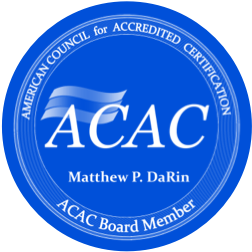Matthew DaRin, Bluepoint’s Owner and Chief Scientist, was invited to speak at this January (2015) meeting of the Professional Abatement Contractors of New York (PACNY) to provide a comprehensive review of a Mold Bill that was submitted to the Governor Cuomo on 12/29/14. The Mold Bill, S3667D-2013, if passed into law would provide licensing requirements and establish minimum work standards for persons and business entities engaged in mold remediation and mold abatement activities. Although we feel that there is a definite need for regulation in these areas, it is our opinion that this bill fall short and should be vetoed by the Governor for several reasons including:
- The definition of Mold as it exists in the bill is insufficient and ambiguous. Mold is not a scientific classification of organisms, it is an informal characterization of certain types of fungi. Colonies of mold growth (fungi) will often include a myriad of other microorganisms such as yeasts, bacteria, mycobacteria, and actinomycetes. Furthermore, there is no scientifically practical way of determining whether a suspect mold growth is “capable of creating toxins that can cause pulmonary, respiratory, neurological or other major illnesses after exposure,…” (S930.3.). The definition needs to be redefined, as it is the major element of the bill.
- Qualifications are not defined within this bill other than the age limit, fee structure, and insurance requirements. This responsibility is deferred to the Department of Labor. I have serious doubts about the ability of the DOL to establish meaningful qualification requirements, develop the training curriculum, certify/sanction training providers, and establish examination requirement, all within 180 days. Qualifications need to be more robust and clearly defined.
- Paragraph S936.2 & S936.3 Limits persons and business entities from performing both assessments and remediation on the same “property”. This should either be changed to “project” or a statue of limitations needs to be established.
- The bill does not specify a minimum quantity of mold growth for which these requirements would apply.
- The bill only specifies one work practice (for both remediation and assessments) for all levels of mold contamination in all types of buildings. This effectively means that qualification, certification, and minimum work practice requirements to remove or assess mold contamination in a vacant residential building with 1 square foot of mold growth would be the same for a medical intensive care facility with 10,000 square feet of contamination inside the buildings HVAC system. There are extraordinary differences in the level of expertise and experience needed for different thresholds of contamination.
- There are no exceptions to the licensing and work practices for certain non-applicable work activities such as routine cleaning, HVAC, electrical and plumbing activity, real estate inspections, custodial activity, incidental discovery and emergency response, initial construction provisions, and pest control.
- S947.2 – This paragraph states that the Assessor should verify that the underlying cause of the mold growth has been remediated. This can be a difficult, if not impossible thing to verify.
- No discussions of air monitoring (for or against), no exposure limits set forth, no sampling or analytical methodology detailed. Is air testing for mold considered a regulated Mold Assessment activity?
- Very limited guidance on containment, no mention of specific methodologies (I.e. negative air, decontamination systems, etc.)
- Paragraph S933.3 – Details an exemption for the licensing requirement for “An owner or a managing agent or a full time employee of an owner who performs mold assessment or remediation on commercial property owned by the owner provided, however, that this subdivision shall not apply if the managing agent or employee engages in the business of performing mold assessment or remediation for the public. The intentions and applicability of this clause are not clear.
Bluepoint is working with PACNY leadership and other affiliated organizations to draft a letter to the Governor recommending a veto. The bill would expire on January 29, 2015.



















